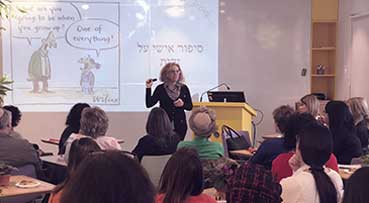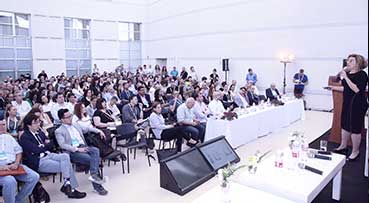In recent years, the intersection of technological advancements and concerns regarding work-life balance has reignited discussions about the role of work in our lives. Books like David Graeber’s “Bullshit Jobs” and Timothy Ferriss’ “4-Hour Work Week” have contributed to the growing popularity of these ideas. However, the COVID-19 pandemic further catalyzed this conversation, prompting individuals to reevaluate their priorities and reconsider the significance of work in their lives. Factors such as family, personal well-being, leisure, and a more balanced lifestyle have taken center stage. As a result, various movements have emerged, advocating for less work and a more integrated approach that emphasizes overall prosperity, beyond mere financial gain. These movements seek to reimagine the relationship between individuals and work, challenging the notion that work should be the sole source of fulfillment and value.
The concept of the future of less work encompasses a range of movements that question conventional work paradigms and promote a healthier balance between professional and personal life. Let’s delve into a few notable examples:
Post-Work Imaginaries: This movement gained traction with Kathy Weeks’ book, “The Problem with Work,” published in 2016. Weeks challenges the assumption that paid work is an inevitable social necessity and questions the belief that work defines our identities and income distribution. Instead, she proposes the idea of an “after-work society” that fosters productivity and creativity outside the confines of traditional work relationships.
Anti-Work Movement: Originally an anarchist idea asserting that salaried positions resemble modern slavery, this movement has gained significant momentum in recent years. Subreddit r/antiwork exemplifies its growing influence, having grown from 100,000 members in March 2020 to over 2.6 million members today. The movement’s message is clear: “Unemployment for everyone, not just the rich!”
These social movements advocating for less work are now converging in a larger debate regarding the future impact of technology. While some argue that technological advancements will create new opportunities and augment human capabilities, others believe that technology will replace more jobs than it generates. Consequently, the future of less work is not solely driven by personal preferences but also by the transformative potential of technology. According to this perspective, as technology automates tasks and reduces costs, it may create unemployment but also afford individuals more free time to pursue non-work-related interests.
To address the potential consequences of technological advancements, the concept of basic income assurance, also known as universal basic income, has gained traction. This idea proposes providing every citizen with a fixed amount of money to cover basic living expenses, irrespective of employment status. While it may seem ambitious, similar advancements have already occurred in education and healthcare, which were once exclusive to the wealthy but are now provided by many countries for their residents. Harnessing cost reductions associated with technological progress could allow for a future where basic needs like food and housing are supported by society, rather than solely by employment.
Meanwhile, policy makers are also grappling with the right to disconnect, a movement advocating for employees’ legal right to disconnect from work-related communications outside of working hours. Originating from legislation enacted in France in 2001, this movement acknowledges the blurring boundaries between work and personal life due to technological tools. As a result, several countries, particularly in Europe and Canada, have incorporated the right to disconnect into labor laws, recognizing the importance of achieving a healthier work-life balance.
Furthermore, the concept of a four-day work week has gained considerable momentum, especially in the wake of the pandemic. Pilots in various countries and organizations explore the idea of reducing the workweek to four days without compromising wages. Some experiments involve a shift to a 32-hour workweek while maintaining full salaries, while others explore condensing the standard 40-hour workweek into four longer but more concentrated days, allowing for an early start to the weekend. These initiatives aim to demonstrate that productivity can be maintained or even improved while significantly enhancing employee satisfaction and well-being.
It remains to be seen whether these changes will become the new norm or if flexible and hybrid work models will prevail, giving individuals the autonomy to determine how they distribute their working hours across time and location. The hybrid approach, which emphasizes output-based measurement rather than rigid schedules, offers even greater flexibility. It allows individuals to choose between compressed workweeks or partial workdays according to their preferences and evolving needs. Successful implementation of such a model relies on organizations embracing the most flexible definition of hybrid work.
Already existing outside the traditional office structure are digital nomads, individuals who leverage technology to work remotely and enjoy the freedom to travel and reside in different locations. By breaking the link between geographical location and employment, digital nomads embody the evolving nature of work in a technologically advanced society.
For those aspiring to early retirement, the Financial Independence, Retire Early (FIRE) movement presents an alternative perspective. Rather than advocating for reduced work hours, the FIRE movement encourages individuals to prioritize rapid savings for financial independence. This allows them to “retire” in the sense of having the freedom to choose how much they work and focus on other areas of interest.
While these approaches may seem unconventional, they share a common aim: to challenge the prevailing concept of work and strive for a more satisfying and balanced existence. The profound shifts in our perception of work and the delicate balance between work and personal life cannot be ignored. This transformative change calls for organizations to adapt accordingly. Approaching the issue solely from a gender perspective or through corporate social responsibility initiatives promoting remote work policies, flexible hours, and well-being benefits is no longer sufficient. This is a conversation that extends beyond the past and looks toward the future.
The COVID-19 pandemic has accelerated the emergence of a future with less work. It has brought to the forefront discussions about the purpose of work, the integration of work and personal life, and the pursuit of more equitable and fulfilling lifestyles. When combined with technology’s ever-increasing capacity to replace traditional tasks, this presents an opportunity to reshape our understanding of work. It compels us to recognize the value of personal well-being, autonomy, and engaging in activities beyond traditional employment. By embracing this opportunity, we can build a more inclusive and meaningful world of work that benefits all individuals.
In summary, the movements advocating for less work and a reimagined work-life balance challenge conventional notions of employment. They envision a future where work is not the sole source of fulfillment, and individuals can prioritize personal well-being and engage in diverse activities. Technological advancements and the COVID-19 pandemic have accelerated these discussions, prompting us to question and redefine the social contract between people and work. As organizations adapt to this evolving landscape, they must embrace flexibility, well-being, and a more holistic approach to create a future of work that is both fulfilling and inclusive.

![large-AX1A2125-2[1] large-AX1A2125-2[1]](https://niritcohen.com/wp-content/uploads/elementor/thumbs/large-AX1A2125-21-pnzedcs72atx5aeurqytqdiihxixlq02re9mlz805s.jpg)






